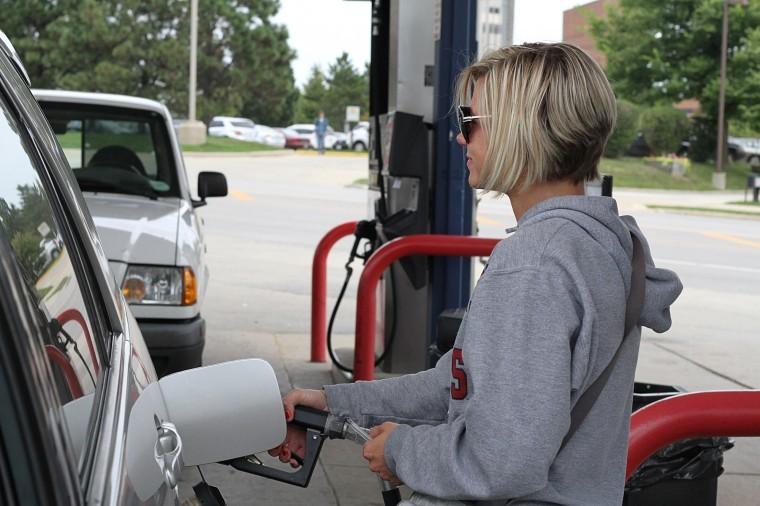Gas tax will yield more revenue from “out-of-towners” than local residents
Kari Gale, juior meteorology major, fills up her gas tank Tuesday afternoon at Road Ranger, 125 N. Annie Glidden Rd., DeKalb.
August 30, 2011
A gasoline tax was increased in DeKalb to fund the construction of a new police station. The tax was approved by the city council on Aug. 8 and will increase from 2 cents to 3.5 cents per gallon.
“We are in bad need of a new police facility,” said DeKalb Mayor Kris Povlsen. “We have outlived its usefulness, and we needed to find new ways to generate revenue for the project.”
The tax increase is expected to generate $300,000 yearly, said First Ward Alderman David Jacobson.
“Through research it was found that approximately 30 to 40 percent of gas revenues in DeKalb come from purchases made at the DeKalb Oasis and at Hintzsche Oil,” Jacobson said. “Assuming that the vast majority of these purchases [at these two locations] are made by out-of-towners, we anticipate that only about $150,000 to $200,000 of the increase will be passed on to DeKalb residents.”
All of the money that is generated is going to go to paying back the $12 million bond the city needs to take out in order to pay for the new police facility, said DeKalb City Manager Mark Biernacki.
“The budgeted water rate that was not passed is an offset to a major portion of the gas tax increase. By forgoing the budgeted water rate increase, the net increase in tax burden was pretty much offset. Meaning, no tax increase for residents,” said Second Ward Alderman Tom Teresinski.
Teresinski said the increase in water tax would have cost DeKalb residents $200,000 yearly had it been increased. This equates to very little of the gas tax hike burden being passed onto DeKalb residents.
Povlsen said if a person drives from 12,000 to 15,000 miles a year, then this increase will only cost them $15 to $20 more a year.
“I think it’s fair,” Povlsen said. “I think it spreads the cost over all citizens in the area, not just DeKalb residents.”
One option the city council discussed but has not yet acted upon is a “sunset clause.” What a “sunset clause” will do is allow the temporary increase of the tax in order to help pay off the bond, but once the bond is paid off, the tax will go back to its original state, Biernacki said.



